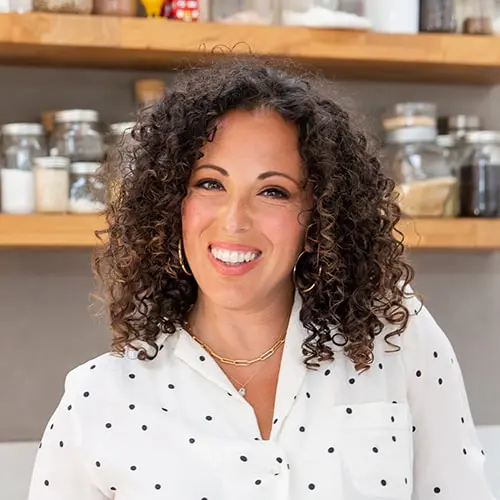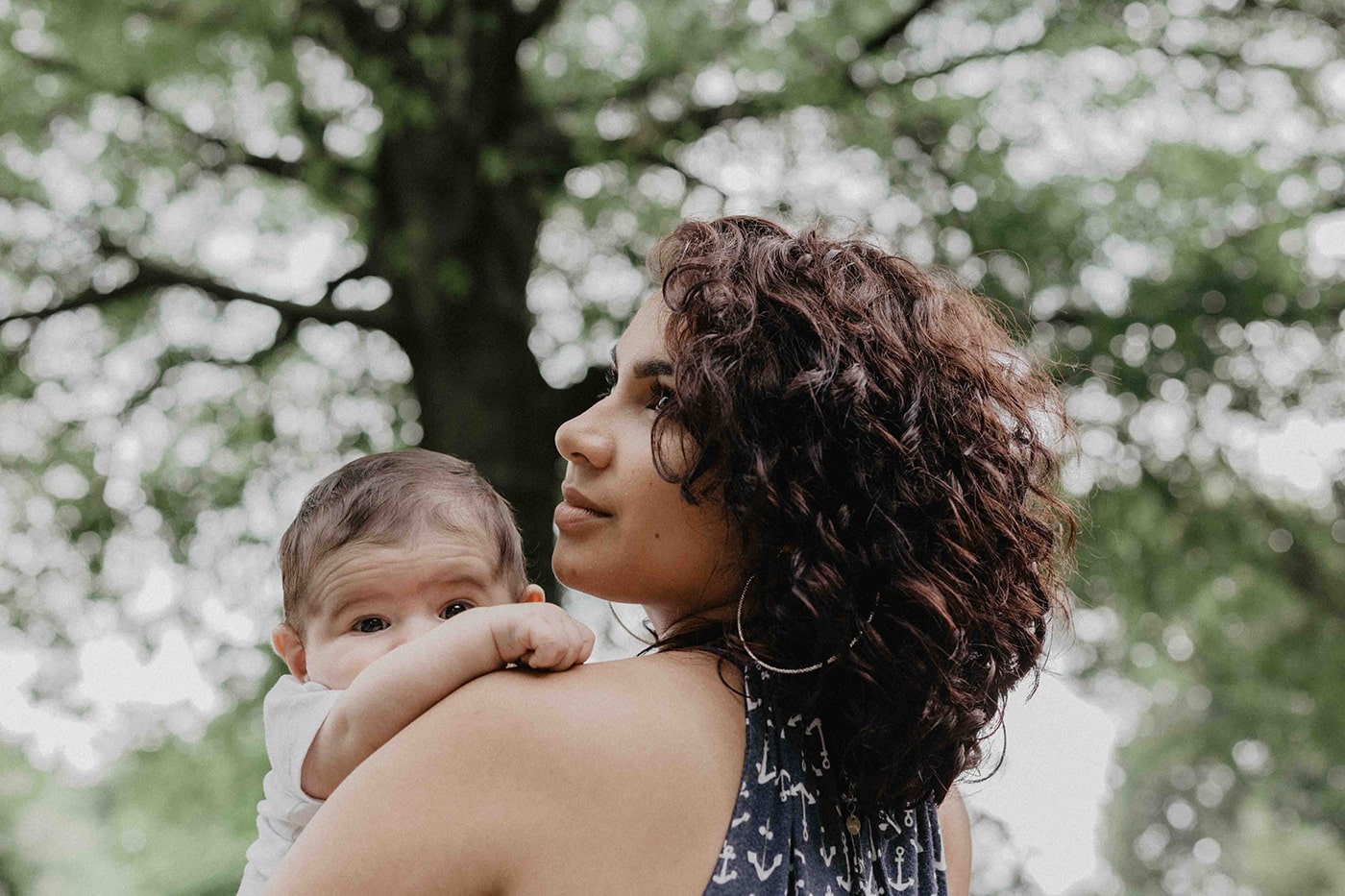Traveling is one of my biggest passions. When I got married, we chose to do a destination ceremony and reception with all of our friends and family in Sayulita, Mexico, instead of a traditional wedding (no regrets there!).
Traveling hasn’t always been fun for me, though. When I was younger, I felt like EVERY time I traveled, I got sick. And I’m not talking about a cold, folks – I’m talking about the nemesis of every globetrotter: traveler’s diarrhea.
Traveler’s diarrhea, Montezuma’s revenge, Delhi/Bali belly – it’s all caused by food poisoning. And while it will definitely ruin your trip, it also has a more sinister side – food poisoning can cause lasting damage to your digestive system leading to a lifetime of #gutproblems.
Want to know how food poisoning can cause long-term digestive issues – and what I do to avoid traveler’s diarrhea (even in the most exotic locales!)? Keep reading!
(Not interested in the science? Skip here for my travel tips).
How Food Poisoning Can Wreck Your Gut Long Term
I can’t tell you how many patient in my clinic can trace their digestive symptoms back to a case of food poisoning. And the science backs them up! Food poisoning is a known cause of irritable Bowel Syndrome (IBS). IBS after food poisoning is called “post-infectious IBS.”
But this gets a little complex, so bear with me here…
IBS isn’t a disease – it’s a syndrome. That means it’s just a name for a group of symptoms (fun stuff like gas, bloating, diarrhea, constipation, and food intolerances). IBS is a diagnosis of exclusion, meaning your doctor will call your symptoms IBS when they can’t find any other cause for them.
For many people – perhaps as much as 60% – the actual cause of IBS symptoms is something called Small Intestine Bacterial Overgrowth (SIBO). SIBO occurs when bacteria that should be confined to the large intestine migrates up and into the small intestine. A healthy small intestine should have very little bacteria in it!
So how does bacteria get from the large intestine to the small to cause SIBO?
It’s usually do to a problem with the Migrating Motor Complex (MMC). The MMC is what creates movement in your intestines – called peristalsis – and moves food from your stomach down through your intestines and eventually out of your body.
So what can harm your MMC? The most common causes are chronic viruses like Lyme disease, structural abnormalities, high stress levels, and… food poisoning!
Stay with me here – food poisoning can cause your Migrating Motor Complex to malfunction. When the MMC malfunctions, bacteria can move from the large to small intestine and overgrow, causing SIBO – and SIBO is the cause for as much as 60% of IBS!
As you can see, it’s a complex chain of events – and that’s why for years doctors have missed the connection between IBS, SIBO, and food poisoning. Luckily they are catching up now.
Toxins & Autoimmune Responses
So how exactly does the food poisoning cause damage to the Migrating Motor Complex?
Common food poisoning bacterias like E. coli, salmonella, Campylobacter jejuni, and Shigella all produce a toxin called cytolethal distending toxin B. It sounds bad, doesn’t it?
Your body will start producing antibodies against the cytolethal distending toxin B. For some people, they’re able to fight it off over in a few days and move on without long-term problems, but for about 10% of us (raising my hand!) we can’t fight it off as quickly – and therefore we keep producing more and more antibodies.
These antibodies don’t just fight the cytolethal distending toxin B – they also reduce a kind of protein in our intestine called vinculin.
Vinculin is very important in the health of Migrating Motor Complex – vinculin is crucial for proper function of nerve cells in the gut that cause peristalsis. When the MMC isn’t functioning and movement of food through the gut is slowed down, bacteria can overgrow and cause SIBO – plus other symptoms like bloating and gas.
The good news is that your gut can recover vinculin over time. First, you need to heal the SIBO. But it’s also critically important that you don’t get food poisoning again. So if you already have some gut issues, don’t stop reading now!
Here’s What I Do To Avoid Traveler’s Diarrhea
The key to avoiding traveler’s diarrhea is being proactive – think about where you’re going, research, and prepare! There are supplements I take to prevent illness, supplements I bring with me for defense in case I start feeling sick, and hygiene practices I follow, too.
Supplements I Use When Traveling To Keep My Gut Happy
When I’m travelling, I always take a probiotic. My favorites are Floramyces (which contains the yeast Saccharomyces boulardii) or UltraFlora Acute Care (this one blends S. boulardii with Bifidobacterium and Lactobacillus). I take 1 capsule of either, 1-2 times daily.
I also take Biocidin Advanced Formula Liquid to help boost my immunity. I start with 3 drops per day and work up to 5-10 drops twice daily.
Finally, I always take an Adaptogen blend. Adaptogens are herbs that help mitigate the stress of traveling. Yes, traveling is fun – but it is also hard on our bodies! Moving through time zones, awkward sleep schedules, and even just enjoying all the “newness” are all registered as stress to our bodies. I like blends that contain herbs like rhodiola for emotional and mental stress and eleuthero for physical stamina. NanoMojo Liquid and HPA Axis Homeostasis are my two go-tos.
Don’t Eat That!
Hygiene practices are so important for avoiding traveler’s diarrhea.
I always carry hand sanitizer with me – but not the conventional kind! Commercial hand sanitizers are full of BPA and other chemicals. Instead I make my own from aloe vera gel with lavender and tea tree essential oils, plus some Silvercillin. If you don’t want to make your own, this is good alternative. And of course – wash your hands with hot soap and water whenever you can.
Only drink bottled water – and never get ice! (Yes, even on the plane and in fancy restaurants!)
Avoid salad and uncooked veggies – especially lettuce. Cooked veggies (and cooked, hot food in general) are better when traveling. Worried about missing your greens? I bring a greens powder with me and mix it with bottled water. This one is my favorite.
Make sure you wash any produce you buy. As tempting as it is, don’t eat fruit straight from the farmer’s market cart. Wash it with a non-toxic fruit and veggie disinfectant first!
When eating out, look for food carts and restaurants with long line and plenty of locals.
Do This If You Feel Something Coming On
The minute I start to feel “off” – fatigued, grumbling stomach, or even a headache – I switch from my prevention to my treatment protocol.
I up the Biocidin Liquid to 10 drops, 3x per day.
I double up the probiotic.
I add in Oregano Oil Gelcaps for several days – 2 caps 3x daily.
And if diarrhea strikes? I go to a classic Chinese remedy called Huang Lian Su. It’s a blend of berberine-containing herbs that always works for me. I use 4-5 tablets, 3-4 times daily.
Happy Trails To You!
I hope these suggestions helps ease your fears about traveler’s diarrhea – and allow you to travel the world without getting sick!
And if you think food poisoning is at the root of your SIBO or gut problems, I hope you’ll consider working one-on-one with me to get it resolved. There is hope for overcoming gut problems – even one you’ve had for years! You can book a free consult with my team anytime. We’d love to help you!
At the Reverse-Age Method, we believe in a holistic approach to perimenopause and beyond, that addresses the root causes of your symptoms (like insomnia, hot flashes, night sweats, erratic periods, fatigue, skin aging, weight gain, and brain fog)– to also slow the pace that your cells are aging. Whether it’s improving gut health, optimizing detox function, enhancing mitochondrial function, or building muscle mass, our comprehensive program has got you covered.
If you’re new here, be sure to check out our Blog Page for more insights and tips on how to thrive during perimenopause. Our blog is packed with practical advice, success stories, and the latest research to help you on your journey.
For more updates and community support, follow us on social media:
You May Also Like...
Effective Ways to Deal with Postpartum Depression and Anxiety
Feeling like a hot mess after having your baby? Are you blitzed out in love but also feel like you want to crawl into…
Eat What You Love Again This Holiday Season and Beyond
Everyone is gathered around the holiday table eating pumpkin pie. But not you. You know how you’ll feel after eating…
Whether you’re looking for help with your gut, your hormones, or both, our team of practitioners work together to treat the WHOLE you – guiding you to a healthier mind, body, and spirit day by day.



